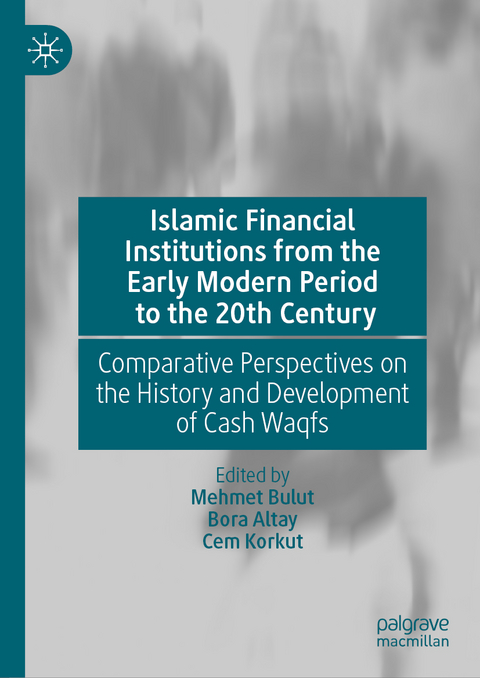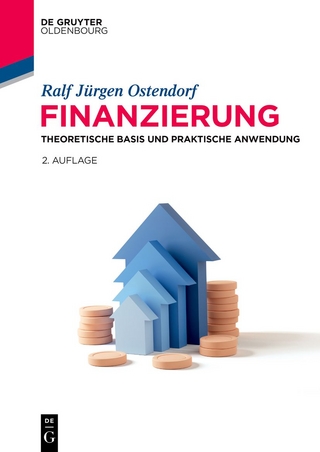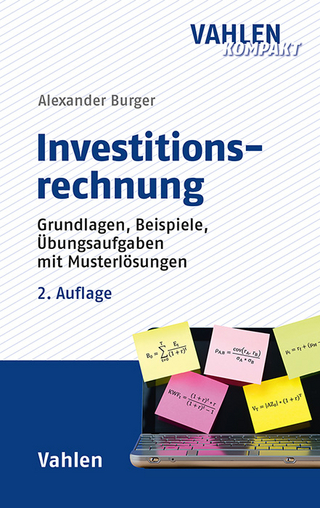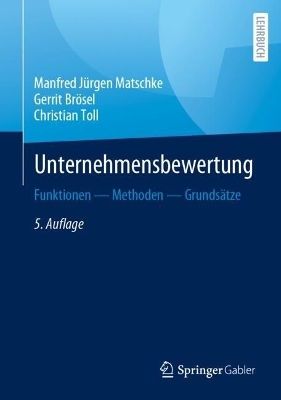
Islamic Financial Institutions from the Early Modern Period to the 20th Century
Springer International Publishing (Verlag)
978-3-031-51317-6 (ISBN)
The edited collection offers a comprehensive and intricate exploration of Ottoman cash waqfs, extending its scope from the early modern era to the onset of the twentieth century. It delves into the historical evolution of these private Islamic financial institutions, shedding light on their enduring influence and drawing insightful parallels with both contemporary Middle Eastern and European financial systems.
Leveraging newly uncovered data spanning various regions of the Ottoman Empire, this work scrutinizes the dynamic functions of waqfs, revealing their significant imprint on today's financial paradigms. It advances existing scholarship by employing quantitative methodologies and systematic analysis of these emergent datasets, facilitating a sophisticated, longitudinal study of cash waqfs within the broader spectrum of historical interest rate trends and global credit markets. The chapters trace the transformation of waqfs from entities primarily holding immovable assets to those managing movable assets (cash waqfs), delineating their role in generating revenue for diverse purposes. These encompass funding state debts, fostering infrastructure development, and extending microcredit to economically marginalized segments of society. Additionally, the book explores the challenges and failures encountered in the transition of financial institutions during the Ottoman era, particularly in the context of the emergence of large public banks. The concluding segment of the book offers a comparative analysis of financial systems across various countries, including the shift from private to public banking in Italy, and contemplates the potential applicability of waqf models in contemporary microcredit initiatives and sustainable development strategies. This volume will appeal to scholars of financial history, economic history, Ottoman studies, and Islamic finance.Mehmet Bulut is a Professor of Economics in the Faculty of Business and Management at Istanbul Zaim University, Türkiye.
Bora Altay is an Assistant Professor in the Department of Economics, Faculty of Political Sciences, Ankara Yildirim Beyazit University, Türkiye.
Cem Korkut is an Associate Professor in the Department of Economics, Faculty of Political Sciences, Ankara Yildirim Beyazit University, Türkiye.
Chapter 1. Introduction.- Chapter 2. Ottoman cash waqf contracts and the transactions from the 15th to 19th centuries: a source for the new cash waqf fintech contract model and sdgs.- Chapter 3. Ottoman practices of zakat (obligatory alms): a tax or charity?.- Chapter 4. Nano entrepreneurship and saving-based finance concept in waqf literature: a systematic review and future research direction.- Chapter 5. Effects of cash waqfs on sustainable economic development in the balkans during the early modern period.- Chapter 6. Philanthropy in ottoman rumelia: cash waqfs from four provinces.- Chapter 7. From the periphery to a global player: historical evolution of the qatari banking sector.- chapter 8. From private bankers to public banks in the kingdom of naples (15th - 17th c.).- Chapter 9. Tracing the connections of transnational financial players with a peripheral country: some evidence from the south of italy over the first globalization.- Chapter 10. From the dutch to british hegemonies: what were the differences?.- chapter 11. Conclusion
| Erscheinungsdatum | 17.02.2024 |
|---|---|
| Zusatzinfo | XVII, 206 p. 22 illus., 12 illus. in color. |
| Verlagsort | Cham |
| Sprache | englisch |
| Maße | 148 x 210 mm |
| Gewicht | 421 g |
| Themenwelt | Wirtschaft ► Allgemeines / Lexika |
| Wirtschaft ► Betriebswirtschaft / Management ► Finanzierung | |
| Schlagworte | Banking • cash waqfs • Islamic Finance • Islamic financial Institutions • Ottoman Cash Waqf Contracts • Ottoman Empire • Ottoman financial insitutions • private and public banks • Qatari banking system • role of Islamic finance in global finance • Sustainable Economic Development |
| ISBN-10 | 3-031-51317-7 / 3031513177 |
| ISBN-13 | 978-3-031-51317-6 / 9783031513176 |
| Zustand | Neuware |
| Haben Sie eine Frage zum Produkt? |
aus dem Bereich


